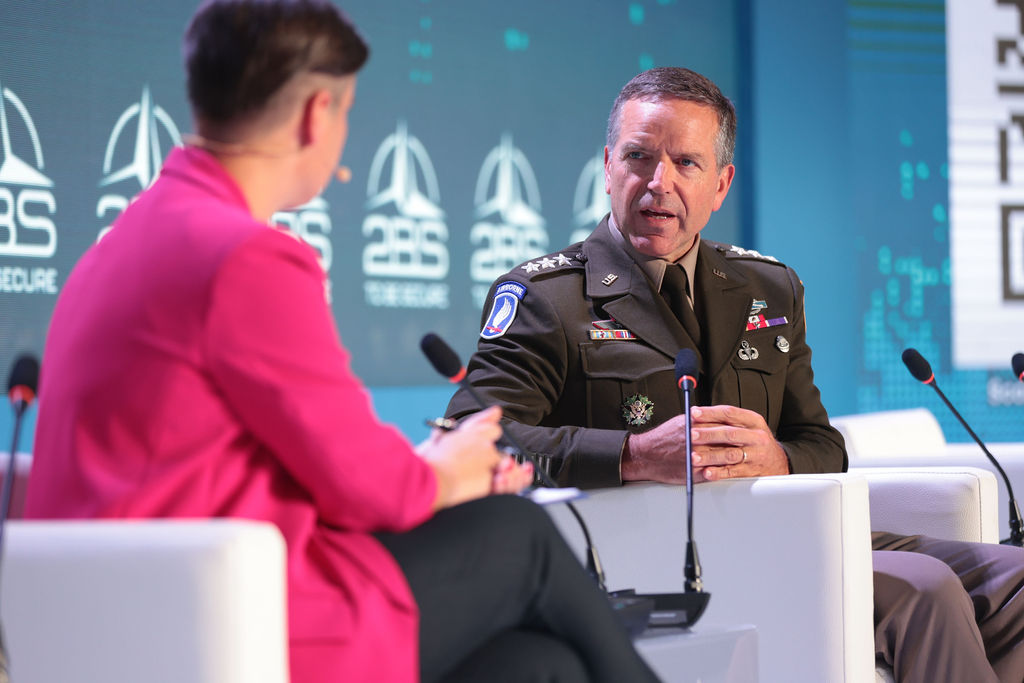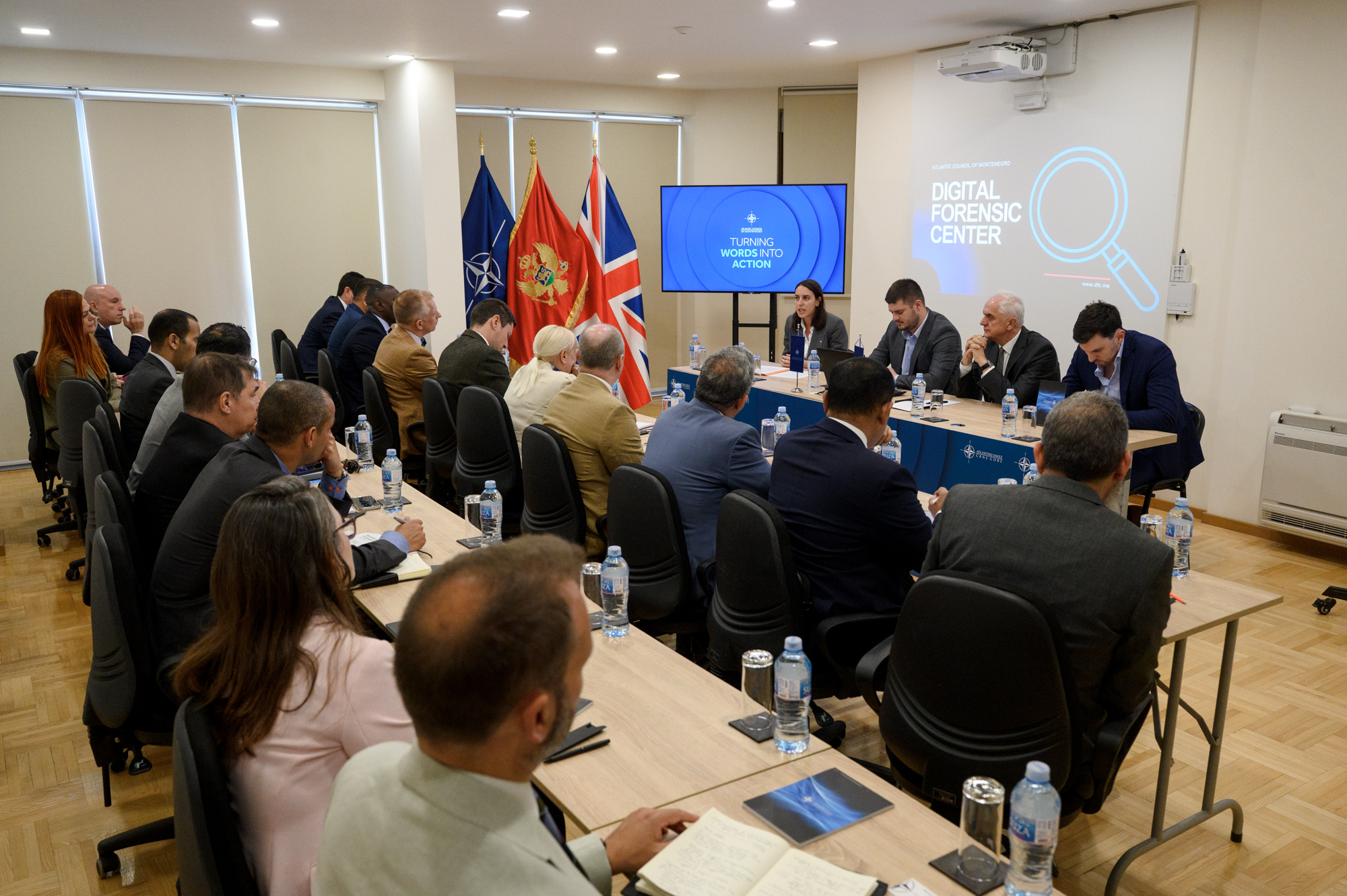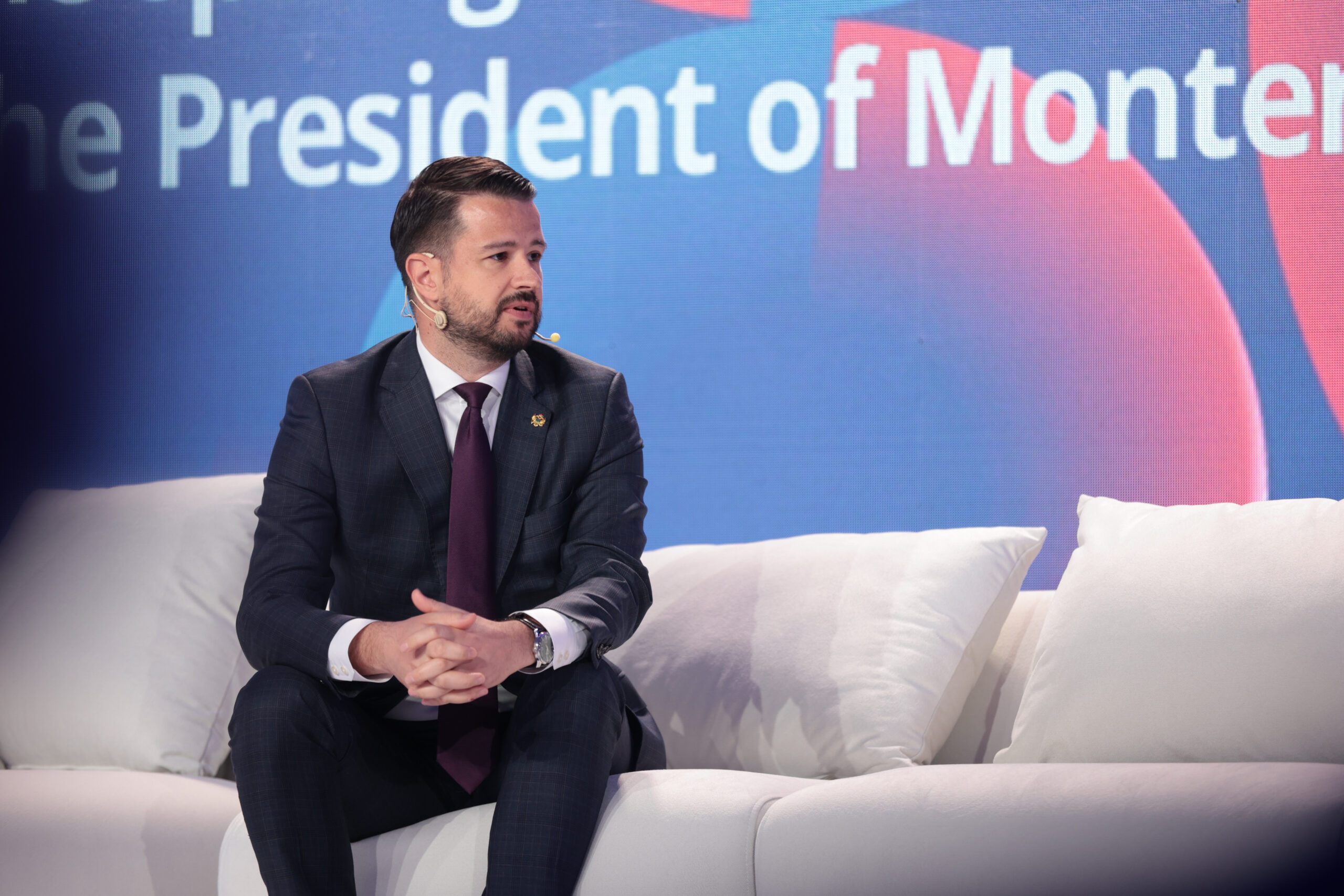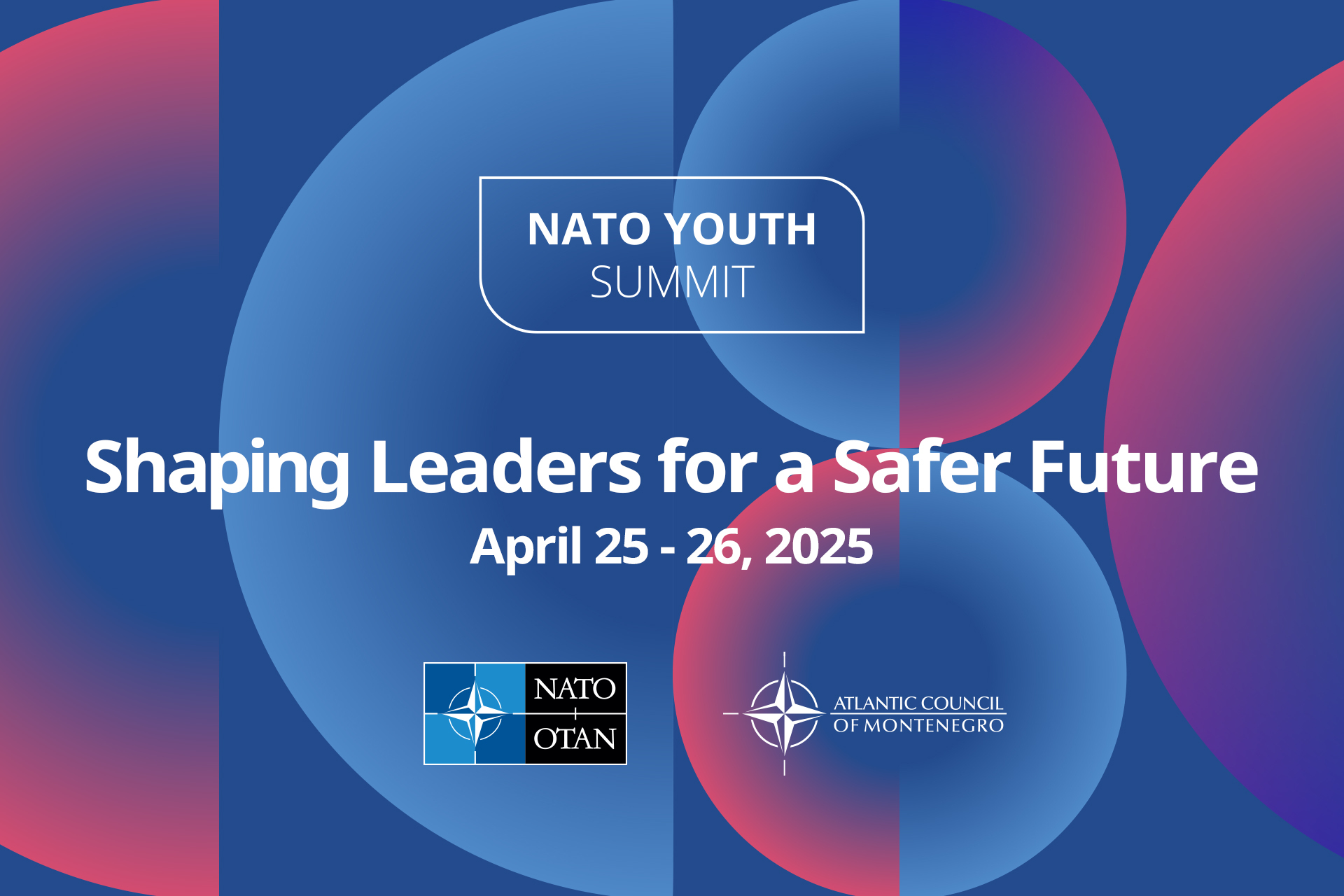“NATO is fully committed to Montenegro, which is a key part of the Alliance. It is important for the Alliance that there is strong leadership in Montenegro,” said Lieutenant General Andrew M. Rohling, Deputy Chairman of the NATO Military Committee, during a conversation with Jasmina Kos at the 2BS Forum.
Although there has been a change in the NATO Secretary General after ten years, Rohling believes that there are no changes in terms of overall efforts and that NATO continues to promote security throughout Europe.
Speaking about Russian influence in the region and asked whether NATO has mechanisms to resist it, Rohling stated that we should not focus on how we will do it but rather look at how we have already done it.
“Russia carried out a strong cyberattack on Montenegro, and NATO, together with Montenegro, took decisive measures to counter it. This was a way to assist Montenegro, and all 32 member states contributed in that situation. Russia spreads disinformation and uses other methods to weaken our resolve, but the Alliance and Montenegro, together, ensure a secure collective environment,” Rohling stated.
When asked about the performance of the Montenegrin armed forces and whether changes in leadership could affect it, Rohling reiterated that NATO needs strong leadership in Montenegro.
“I will give you an objective assessment: for the past two months, a portion of Montenegro’s forces has been training in Germany. They were part of a larger American brigade, and they performed phenomenally during that exercise. This demonstrates the readiness of Montenegro’s armed forces in practice. Montenegro also contributes to missions in Iraq and Kosovo, which is very important,” Rohling emphasized.
Rohling welcomed the decision of the Montenegrin authorities to increase defense spending to over two percent, as well as the investment in modernizing the armed forces. He assessed that Montenegro is on the right path to keeping its armed forces prepared.
Speaking about the risks in the Balkans, Rohling stated that NATO is committed to the Western Balkans.
“Although Montenegro is a safe country, there are actors trying to undermine that. NATO is committed, and we have the same presence as in previous periods. There are reasons for concern in the Balkans due to elements of instability, but that is why NATO is even more prepared for anything that may come our way,” Rohling emphasized.
“It is important that we do not allow instability; that is why we promote stability in this region,” concluded Rohling.
He assessed that the war in Ukraine poses an immediate threat to the Balkans, but that instability in the region has been present for a long time.









